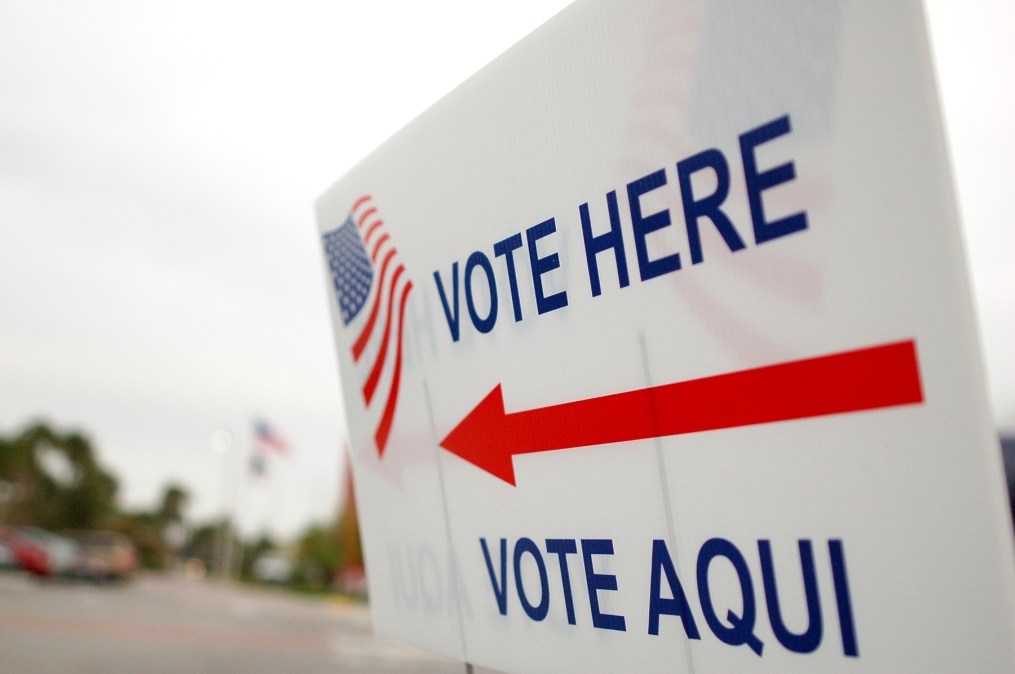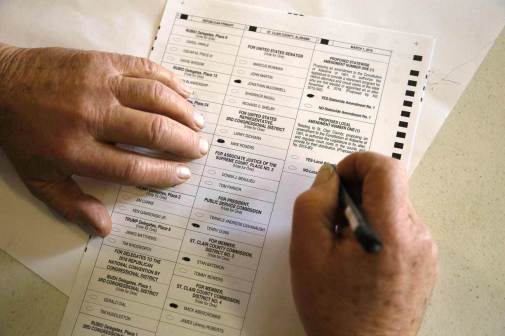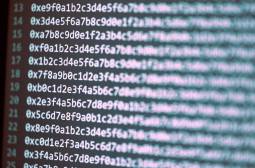Glitchy voting machines in South Carolina spur new investment

South Carolina election officials said Friday they’re pushing ahead with plans to replace the state’s nearly 13,000 electronic voting machines in time for the next presidential election in 2020, following complaints by some voters last week that the aging equipment changed their ballots or simply broke down, causing extreme wait times at polling places.
The State Election Commission said it is requesting $60 million from South Carolina lawmakers to swap out the existing equipment, which was purchased in 2004, for a balloting system that can produce a paper ballot. The machines the state currently uses to conduct elections only offer voters a touchscreen interface and are not capable of printing out paper backups of votes that can be audited.
South Carolina is one of five states that exclusively use these types of machines — known as direct-recording electronic, or DREs — to collect votes, along with Delaware, Georgia, Louisiana and New Jersey. Several other states, including Texas and Pennsylvania, use DREs as their main type of voting equipment.
According to The State, a newspaper in Columbia, South Carolina, voters last Tuesday reported numerous issues with the election. One woman claimed a machine changed her preference for a U.S. House race six times before she was given another machine. Voters around the state also reported voting machines glitching out and poll workers not having paper ballots as a stopgap. The American Civil Liberties Union of South Carolina wrote in a letter last week to the State Election Commission that the mechanical failures and lack of backup ways to collect votes led to waits of more than an hour at some polling places.
The ACLU chalked up some of these shortcomings to inconsistencies in election administration across counties.
“Across the state, poll managers and clerks were handling machine malfunctions differently,” the letter states. “While clear guidance will not solve all the issues with long lines, a directive that addresses machine malfunction could keep many votes from being lost to frustration. When machine failure results in voters waiting more than an hour to cast their votes, then poll managers should use paper ballots as an option for voters to move the lines more efficiently.”
South Carolina uses a type of machine known as iVotronic, a model manufactured by Election Systems & Software, one of the leading producers of voting equipment. The state purchased its current inventory in 2004, with an expected 14-year lifespan.
Along with suffering mechanical failures, electronic voting machines like the ones used in South Carolina have been criticized for being susceptible to hacking efforts. Those concerns are central to a lawsuit filed in July against the State Election Commission by a group of voters urging officials to switch to a paper-based system. A similar case is underway in Georgia.
There is no evidence any election systems in South Carolina — or any other state — were hacked last week, federal officials have said.
But replacing the current stockpile of voting machines will take a costly and time-consuming procurement process. The state was awarded about $6 million earlier this year from the U.S. Elections Assistance Commission, and plans to use about 90 percent of that sum as a down payment on new equipment.
A spokesman for the South Carolina State Election Commission told WCSC-TV a new system will be in place by 2020. Next year’s elections for local offices, though, will be conducted on the old machines, which are pushing past the end of their expected lifecycle.






